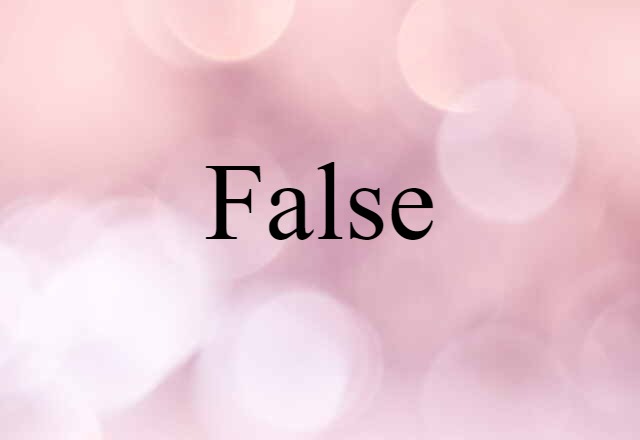- not true or correct; erroneous: a false statement.
- uttering or declaring what is untrue: a false witness.
- not faithful or loyal; treacherous: a false friend.
- tending to deceive or mislead; deceptive: a false impression.
- not genuine; counterfeit.
- based on mistaken, erroneous, or inconsistent impressions, ideas, or facts: false pride.
- used as a substitute or supplement, especially temporarily: false supports for a bridge.
- having a superficial resemblance to something that properly bears the name: the false acacia.
- not properly, accurately, or honestly made, done, or adjusted: a false balance.
- inaccurate in pitch, as a musical note.
- dishonestly; faithlessly; treacherously: Did he speak false against me?
- to betray someone; be treacherous or faithless.
- not in accordance with the truth or facts
- irregular or invalid
- untruthful or lying
- not genuine, real, or natural; artificial; fake
- being or intended to be misleading or deceptive
- disloyal or treacherous
- based on mistaken or irrelevant ideas or facts
- (esp of plants) superficially resembling the species specified
- serving to supplement or replace, often temporarily
- music
- (of a note, interval, etc) out of tune
- (of the interval of a perfect fourth or fifth) decreased by a semitone
- (of a cadence) interrupted or imperfect
- in a false or dishonest manner (esp in the phrase play (someone) false)
















